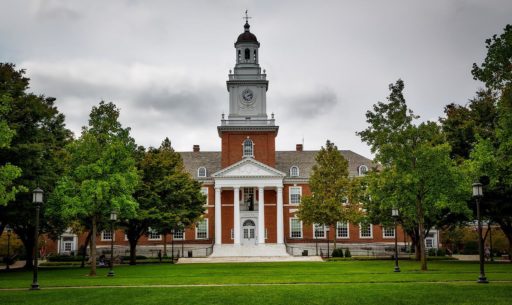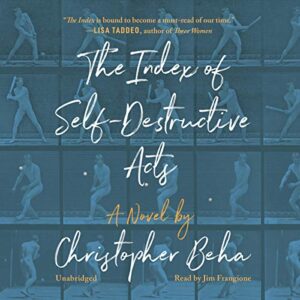The way up and the way down are one and the same. —Heraclitus
Barring any unexpected disasters, my eighteen-year-old son will graduate from high school on Saturday, June 4. (Can you tell I am counting down the days?) He will, at last, be headed out into the clear light of his own future.
The arrival at this particularly American milestone means that I have been both a front-row witness to the current Götterdammerung of the U.S. college admissions scene, and as a class-anxious parent, with more education than money, an active participant. I signed my son up for SAT prep classes, which he balked at, although he ended up complying—when he found out all his other friends were doing it, too.
Then I hired an independent college counselor. I didn’t go for the “full package” that costs thousands of dollars, and which was supposed to have started, I realized with panic, when he was in the tenth grade. The counselor was an old friend from high school who has her own business, totally got where we were coming from, and was able to give him coaching on his admissions essay that he would have never accepted from my husband or me. She’s fantastic! (Feel free to DM me.)
“Mom, this is a waste of money,” he’d say, at times, though he now concedes that the labor of working through the practice tests and essay drafts gave him some valuable lessons in stick-to-it-iveness that he had not counted on. And with Nicole’s patient help, he wrote an essay that made me cry.
Why did I do all this? (And for the record, we went at this from the other side of the cultural chasm too, urging him also to consider such vocations as plumbing and HVAC. Not interested!) The anxiety stemmed from the twin realities that a) we do not have limitless resources to pay for education, and felt like we needed somehow to game the system; and b) my already-pretty-incredible child needed some “shaping” to push through the admissions Machine.
Therein lies the problem. The admissions system today, I read somewhere, rewards not the “bright well-rounded kid” (abbreviated BWRK by admissions reviewers), but the “pointy” kid instead, by which is meant an outsize and distinctive feature—like innovating a patentable medical device, launching a business, or testifying before Congress. Three sports and extracurriculars are nowhere near enough. Conversely, in the absence of such achievements, one way to mitigate it is by being able to foreground an experience of personal disenfranchisement or suffering, and demonstrate how one has overcome it.
This is a problem not just for college admissions but also for the nation’s intellectual culture—and literature—in general. Books, online culture, radio interviews, novels, podcasts, all of them swept up into one.
Basically, it’s a darkling plain where ignorant armies of the nation’s Pointy Kids-in-Chief clash by night. It’s gotten so bad that I can’t sort out the boundaries between the personal brands of authors and thinkers, and the actual books they wrote—whether we’re talking about Dave Eggers, Roxanne Gay, or Beth Moore.
If I had to coin a term for it, I would call the “Heroic First-Person Singular” the central voice of our era. (And by writing about it—in first person!—I myself am implicated in the problem.)
Perhaps such an outcome was inevitable. The democratization of literature and what those of us in the business call “public dialogue” from the provinces of a privileged coterie (say, the Harold Ross-era New Yorker) means that the rest of us are required to just get in there and distinguish ourselves, and wrest back the attention that has been granted to others. The everpresence of social media platforms today makes that noise all the more cacophonous.
It is, to make a circle, not unlike the landscape of contemporary college admissions.
But I’d like here to make a brief for silencing the first-person, in favor of observation. Of using one’s eye chiefly by seeking to serve others always, which I have heard called “one-another”-ing.
And self-abnegating, self-emptying observation is certainly a spiritual discipline I’ve been trying to reflect in my own writing. To capture the Now outside my head that is the only Now we will ever have. That’s far more interesting to me than the Babel-ruins that, ten hours a day, seem to crumble across my screen.
A couple of months ago, on a liquid sunny morning, I was taking my son to a driver’s ed school, a few miles away from our home and across a gritty part of the DC metropolitan area that even those of us who live nearby know only as a pass-through, a neighborhood of hub-cap shops, dialysis centers, off-brand convenience stories, and liquor stores with chain-grated windows. It was not the kind of neighborhood where you would imagine anybody featured on The Daily ever going.
My son was the one who was driving, and as he drove, he drummed his giant hands, their palms callused from baseball, on the steering wheel to the beat of music that only he could hear (Airpods).
He took one of those big hands and gestured outward, as we rode through a span of warehouses, and aging strip malls whose parcels had been portioned out to nail salons and nondenominational churches. Flowering weeds had poked up here and there from cracks on the side of the road.
“You probably don’t know this, but we came over here on our bikes one day. We were only like twelve. We didn’t even ask permission because we didn’t think you’d let us.” And they set about on an afternoon of exploring, amid the recycling plants and sign-less neighborhood brothels, and the social contract that was not much in evidence.
“I don’t know; I just like it in these random places like this.” It was as good an answer as any, and in that moment, I was proud of him, his ability to merge into the city around him.
The world swept out beyond his hand. We sat quiet then, filled with silence and wonder.
Caroline Langston was a regular contributor to Image’s Good Letters blog, and is writing a memoir about the U.S. cultural divide. She has contributed to Sojourners’ God’s Politics blog, and aired several commentaries on NPR’s All Things Considered, in addition to writing book reviews for Image, Books and Culture, and other outlets. She is a native of Yazoo City, Mississippi, and a convert to the Eastern Orthodox Church. She lives outside Washington, D.C., with her husband and two children.





